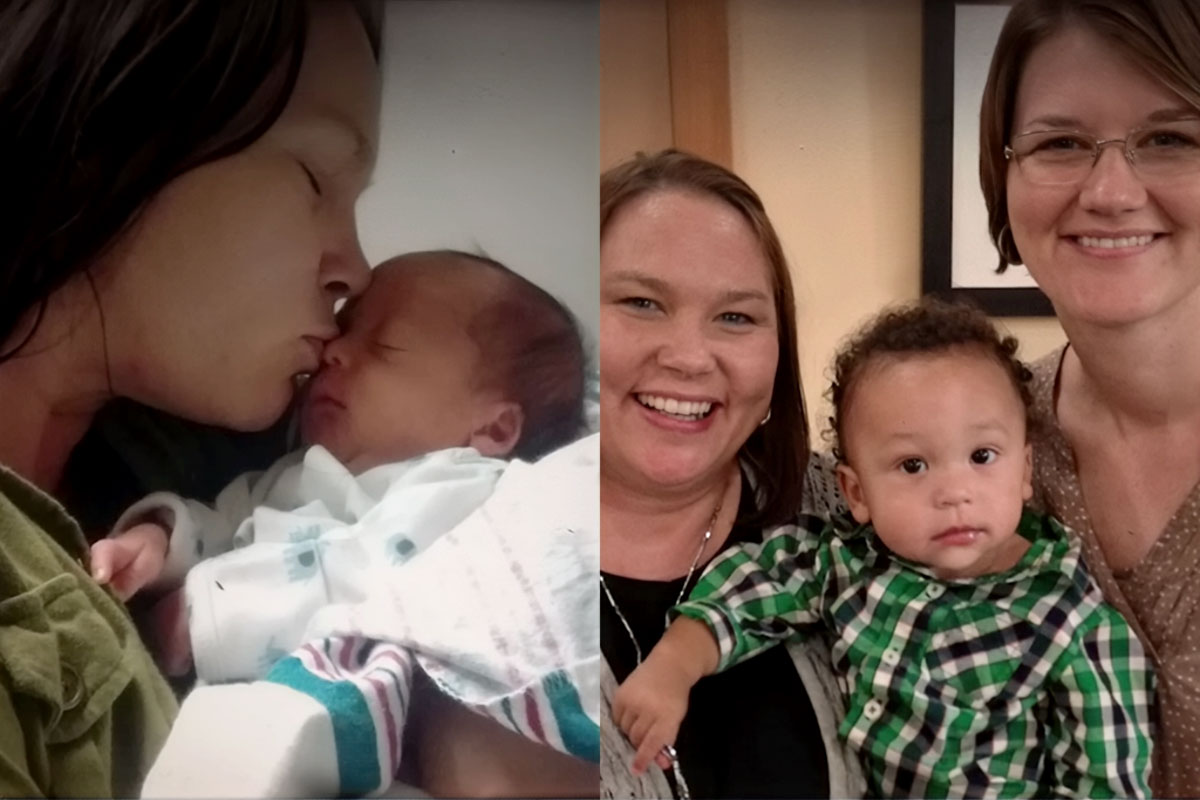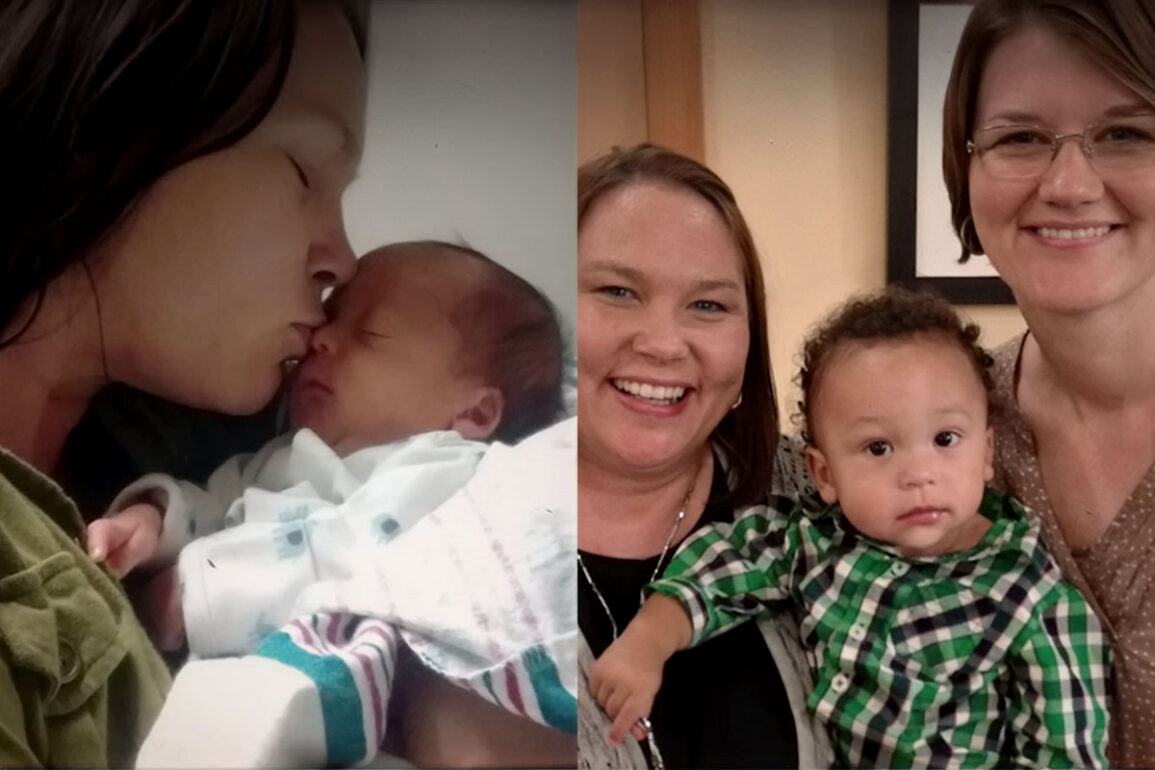
I walk into Jackson pizzeria Sal & Mookie’s with my husband Thomas on Nov. 16, 2016. Our former foster son, Beckham, is turning 1, and his mom, Joanne, invited us to the party. We walk to the back of the restaurant, where several tables are pushed together so that everyone can fit. Joanne’s family is there, as I expected. We met some of them while Beckham was in foster care with us, and there are hugs all around. Today is truly a day of celebration.
As I sit down, Beckham’s social worker from his time in foster care sits across from me. One of the nurses who cared for Beckham in the NICU after he was born prematurely is sitting on my left. This isn’t just a family celebration, it’s a community celebration of the life, healing and a restoration we’ve all gotten to witness over the last year.
As we catch up, one of Joanne’s family members looks at me and asks with wonder, “Can you believe we’re here? Who would have thought this was possible?” She wasn’t talking about this date fitting into everyone’s schedules. She was taking in the monumental change in Joanne’s life after years of watching the chaos of drug addiction unfold.
Transformation happened. Not on anyone’s preferred timeline, including Joanne’s. Not without deep wounds for many of the people at that table. Not without herculean effort on Joanne’s part to build a new life with new rhythms, habits, schedules, priorities and coping mechanisms. But it happened, and we were allowed to witness it, to be part of it. And today, to celebrate it. Joanne radiates with joy as she holds her little man who looks adorable in tiny jeans and a button-up green plaid shirt.
As we sing happy birthday to Beckham, I can’t help but think about the prison complex we drove past in the Delta on our way to bring Beckham home to Joanne after she regained custody of him. She was using illegal drugs just a year ago, but she wasn’t arrested and put in prison. She got to spend time in a treatment center that helped her heal and taught her how to live a fulfilling life. I can’t help but feel uneasy, wondering where we’d be today if she’d been given handcuffs instead of health care.
‘A Better Path Forward With Drugs and Addiction’
The experience of Beckham’s birthday party was just one of many experiences as a foster parent for the Mississippi Department of Child Protection Services that piqued my curiosity about a better path forward with drugs and addiction. So many of the children in our foster-care system are there because of a problem their parents are having related to drugs or addiction. I realized that if there are even small changes we could make to chart a better course forward where drugs are concerned, the effects would be seismic.
| https://www.youtube.com/watch?v=vYF035yCfgU&t=65s failed to embed. |
| The United States often views addiction as a criminal-justice matter. Christina Dent, a conservative Christian, believes in an alternative, health-care-based approach. Video courtesy Stand Together / YouTube |
Rethinking a criminal-justice approach to drugs wasn’t something that came naturally for me. I grew up in a conservative Christian home and community in west Jackson, got a degree in Bible from a Christian university, and supported a tough criminal-justice approach to drugs until I met Joanne. She changed my heart, helping me see the humanity of people struggling with addiction. She wasn’t a “bad person,” as so much of the cultural narrative around drug use told me growing up in the 1980s and 1990s. She was a hurting person, using a substance to fill voids and cover wounds.
After Joanne changed my heart, I started reading and learning, discovering that I hadn’t just misunderstood the root cause of addiction. I had misunderstood almost everything about the root causes of drug-related harm—from crime to overdose to family destabilization. This misunderstanding didn’t just happen to me, though. It permeated our culture and led to the use of the criminal-justice system to try to combat a health crisis.
In 2021, more than 1,300 Mississippians were sentenced to prison for drug possession. Not trafficking, selling, or even intent to sell—just possession of a drug. The same thing Joanne was doing. The average length of their sentences was five years, and their average age at the time of their sentencing was 36. Joanne was just a couple years older than that on Beckham’s birthday, her face lighting up as she blew his candle out for him while all of us cheered.
What would have happened to this single mother and her beloved child if she had disappeared from his life for five years? It wouldn’t have helped her beat her addiction because drugs are readily available in jails and prisons, just like they are in the free world.
Any time there’s demand, there will always be supply. Even worse, it could have deepened her addiction because we now know from research that trauma is one of the biggest drivers of addiction. We’re using the trauma of prison to try to solve a problem that trauma exacerbates. Is it any wonder that it hasn’t worked to decrease drug use? The criminal-justice system is the wrong tool for a complex mental-health issue.
It doesn’t have to be this way. Cities, states and even whole countries are rethinking how they approach drugs and addiction, shifting away from trying to punish people out of their drug use and instead help them heal from the reasons they want to use in the first place. This shift is just one of the ways we could change how we approach drugs in order to reduce harm so our communities, our state and the next generation of our own children can have the best opportunity to thrive.
This MFP Voices essay does not necessarily represent the views of the Mississippi Free Press, its staff or board members. To submit an opinion for the MFP Voices section, send up to 1,200 words and sources fact-checking the included information to azia@mississippifreepress.org. We welcome a wide variety of viewpoints.
This post was originally published on this site be sure to check out more of their content.







